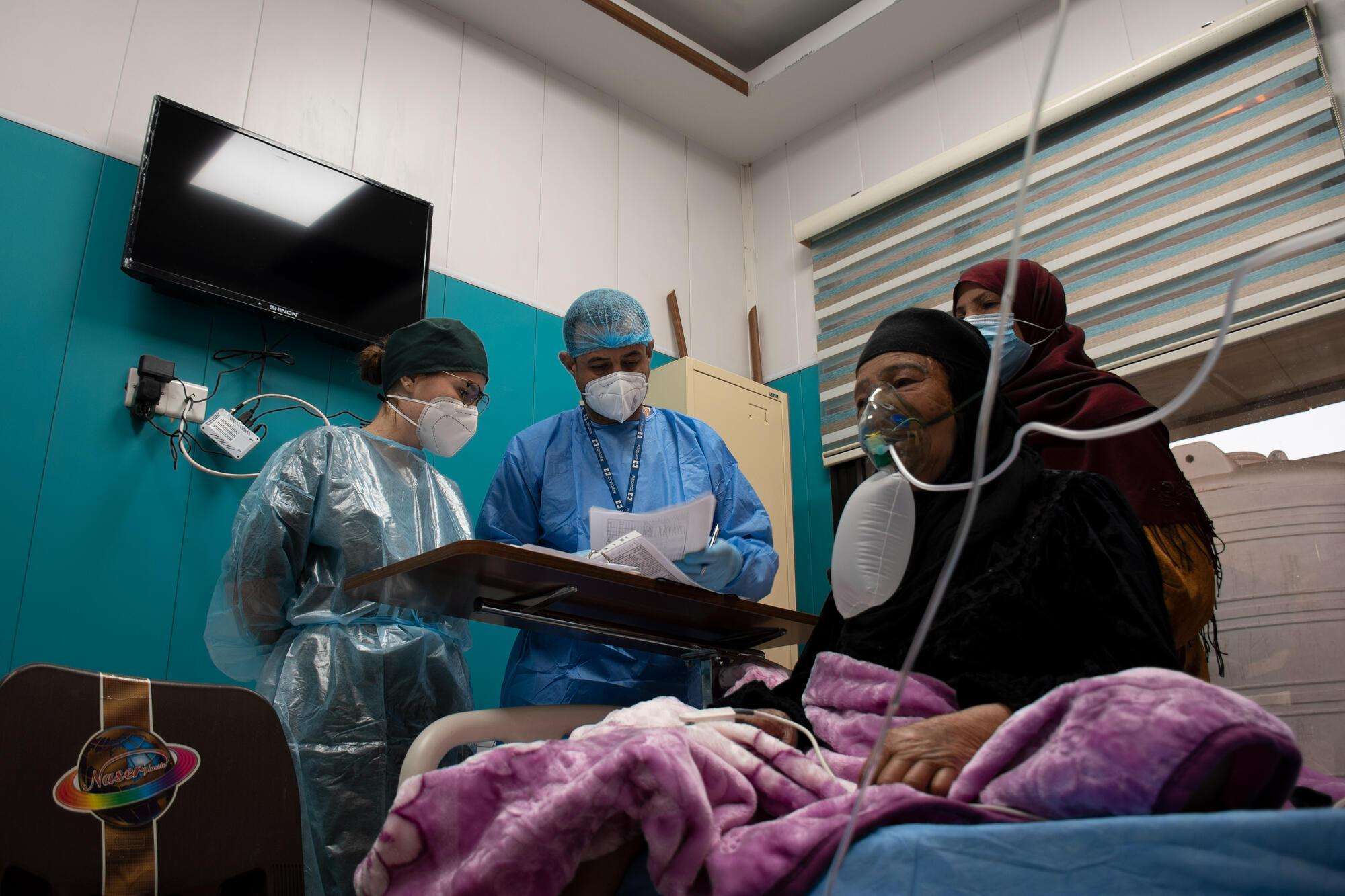NEW YORK, OCTOBER 11, 2021—Merck announced today that it is submitting molnupiravir—a new oral COVID-19 treatment—for US FDA Emergency Use Authorization approval. While Merck has said this drug can reduce the risk of hospitalizations and deaths by half among people at high risk of COVID-19, the drug is highly priced. If the company doesn’t allow for generic manufacturing of this medicine, it will significantly limit global access to the world’s first oral antiviral treatment for COVID-19, said the international medical humanitarian organization Doctors Without Borders/Médecins Sans Frontières (MSF).
Leena Menghaney, South Asia head of MSF’s Access Campaign, said of today’s announcement:
“If approved for use, the first oral antiviral treatment molnupiravir could be a major step forward in the provision of potentially lifesaving care for COVID-19 patients in resource-constrained settings, where billions of people remain unvaccinated and vulnerable to the disease. The drug will need to be made available and affordable as quickly as possible for people who need it everywhere. Oral drugs will be easier to use than the treatments that exist for COVID-19 so far, and allow for much broader administration—as long as they are affordable.
“While Merck is expected to charge $700 for a five-day treatment course of molnupiravir, a new independent study by researchers at Harvard University has estimated the sustainable generic price for a treatment course to be $20. Indian generic manufacturers competing with one another are expected to launch the drug after emergency use approval in India for less than $15 per treatment course, as the drug is not yet patented in India—this is a full 46 times less than what Merck plans to charge.
“While the US government funded Emory University for the development of molnupiravir, pharmaceutical corporations Ridgeback and Merck obtained the licensing and rights for the medicine. Instead of offering broad open licenses widely to all able manufacturers in different countries, a narrow voluntary license approved by Merck in April 2021 only includes Indian generic companies. This hinders countries like Brazil from being able to produce and import generic versions and raw materials. Middle-income countries excluded from the license had 30 million COVID-19 infections in the first half of 2021—50 percent of all infections in low- and middle-income countries.
“Despite several low-cost generic versions already developed in India and in the pipeline in Bangladesh, Merck retains control in high-income and many middle-income countries because of patents. It gets to determine which countries to supply the drug to and at what price. As opposed to large protein-based biological medicines, molnupiravir is a small-molecule drug that would be simple to produce and register for generic producers around the world.
“The molnupiravir case illustrates why the ‘TRIPS waiver’ is so urgently needed. The waiver would waive intellectual property for COVID-19 medical tools during the pandemic and would remove legal barriers so that countries the world over could produce versions of these medicines and more lives could be saved.”
MSF responds to Merck’s filing for FDA emergency use authorization for COVID-19 drug
If approved, first COVID-19 antiviral pill molnupiravir could have big impact. But it will need to be made available and affordable for people everywhere.

Iraq 2021 © Hassan Kamal Al-Deen/MSF



